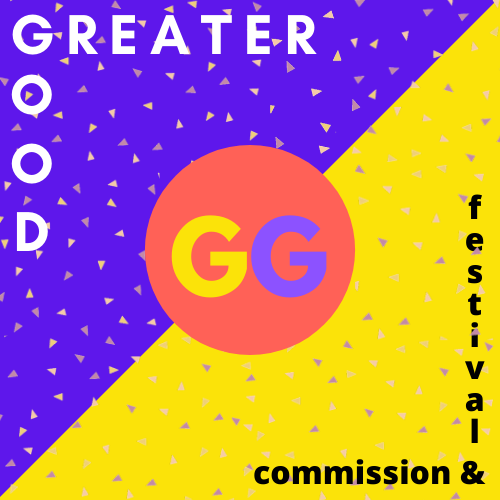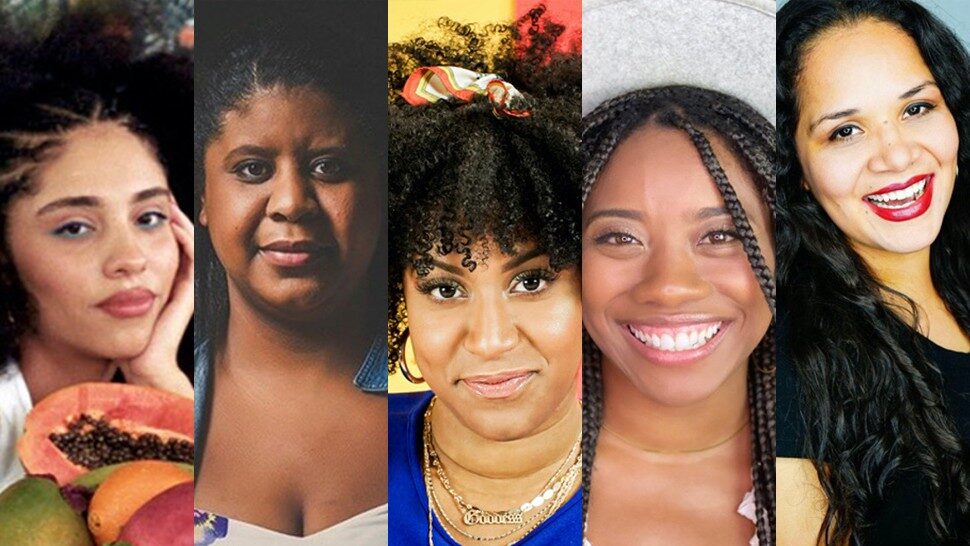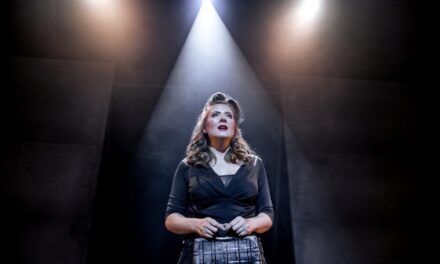In October 2017, a group of Latinx playwrights came together in New York City to share space, build community, and grow together as theatre artists. What started out as an informal meeting at Primary Stages with Chicago playwrights Isaac Gomez and Nancy García Loza has now grown into a fully-fledged organization—the Latinx Playwrights Circle (LPC). LPC’s mission is “to create a network of Latinx playwrights that theatres can get to know by offering space where the playwrights can hear their plays out loud in an environment that nurtures and uplifts their work with the goal to eventually develop new work that is ready to be workshopped/produced in NYC.” Along with support from The Public Theater, Primary Stages, and LATEA, LPC writers are mentored by playwright heavyweights Migdalia Cruz, Carmen Rivera, Cándido Tirado, and J. Julian Christopher. Under the leadership of co-artistic directors Oscar A. L. Cabrera and Guadalís Del Carmen and Special Projects Director Darrel Alejandro Holnes, LPC has continued to evolve, hosting playwriting workshops, providing crucial mentorship opportunities, and now, offering a fully digital season in 2020-2021.
Although the LPC has only been around for three years, the playwrights group has already made a name for itself, quickly coming a critical part of the Latinx theatre ecosystem throughout the United States. The LPC advocates for Latinx writers, creating visibility and helping Latinx playwrights to amplify their voices. In a statement on American Theatre, Cabrera notes: “It was our hope to extend from the writers’ room to the stage, and the three years of hard work from the ground up has finally come to pass.”
And come to pass it has. While LPC’s digital season includes a host of online theatre offerings, the organization aims to address several glaring issues in the US American theatre—namely anti-Blackness in the Latinx community. Afro-Latinx playwrights have historically been marginalized, facing a severe lack of representation even from within culturally-specific Latinx theatre companies. Yet, there has been no shortage of Afro-Latinx playwrights making what famed Chicanx theatre scholar Jorge Huerta would call “necessary theatre.” Playwrights such as Adrienne Dawes, Guadalís Del Carmen, Darrel Alejandro Holnes, Lady Dane Figueroa Edidi, Krysta Gonzales, Nick Malakhow, Jasminne Mendez, Erlina Ortiz, Juliany Taveras, and Cándido Tirado have all penned noteworthy plays in recent years that demonstrate that Afro-Latinx theatre is American Theatre and, for that reason, we must pay attention.
Seeing this need, the LPC partnered with the Greater Good Commission (GGC) to support the work of Afro-Latinx playwrights and push against the very systems that have historically marginalized Black Latinxs. The GGC was founded by Darrel Alejandro Holnes, an Afropanameño playwright himself who recognizes, “By giving these artists support we are enriching the community and diversifying the theatre landscape with the work by five incredibly talented Afro/Black-Latina playwrights.” While the commission’s focus might change in future seasons, the initial focus will be on Black Latinx playwrights Christin Eve Cato, Julissa Contreras, Candice D’Meza, shenny de los angeles, and Rachel Lynett. Each writer received a grant to develop and support a digital production of new short plays. Their works-in-development were presented in the 2020 Greater Good Theater Festival on October 15, 2020 produced by the LPC and the landmark Pregones Theater/Puerto Rican Traveling Theater in New York City (View the festival plays here).

The Greater Good Commission and Festival
The festival was produced by Del Carmen, a critically-acclaimed playwright in her own right. For Del Carmen, producing the commission and the festival was a highlight of the year for her.
“We had over 30 submissions to our call for Black/Afro-Latinx playwrights across the nation which speaks to the need for more Black/Afro-Latinx voices to be heard, included, and moved to the front of so many of the conversations about the Latinx community,” asserts Del Carmen, adding, “I’m proud of the work we did and I’m proud of Darrel Alejandro Holnes for creating this commission and the intent behind it.”
While each Greater Good playwright brought their unique talents to the festival and came away with something different, I checked in on Candice D’Meza, a Haitian theatre-maker based in Houston, to see just what being a part of an all-Afro-Latinx festival meant to her as an artist. (For information about other GGC plays and playwrights, see Playbill)
D’Meza’s inclusion in the festival should not be overlooked. Although at times those of Haitian descent are excluded from US Latinx spaces, LPC notably is working towards creating an inclusive space that includes a full spectrum of Latinidad. This is not lost on D’Meza. “It feels good to represent Haiti in Latinx spaces,” admits D’Meza, acknowledging, “We are still dealing with colonial terms.”
D’Meza presented two micro plays from the same theatrical universe during the festival. Her short plays—Alien Abduction and Answer the Bloodline/DNA Sakofa—comprise part of “30 Ways to Get Free,” an ongoing series by D’Meza that engages with speculative fiction, sci-fi, and Afro-futurism. In D’Meza’s words, the short pieces in “30 Ways to Get Free” all “imagine the different ways that Black people across the diaspora can get free of oppression in its many forms.”
Alien Abduction follows two Afro-Latinx friends, both seniors in high school. One is an aspiring astro-physicists who, now pregnant, realizes that her options on earth are limited. She makes a crop circle and an interstellar communication device with the hopes of being abducted by aliens. Her main goal? To escape the cycle of what is likely to be her outcome on earth.
Its companion piece, Answer the Bloodline/DNA Sakofa, imagines a future dystopian Haiti in which two teen cousins are living on their own without family. They’ve recently been kicked out of their orphanage and are looking for land that one of the cousins believed that their grandmother owned when she was alive. Their grandmother has been coming to her in a dream, tasking her to find this land. Thus begins their adventure.
To continue shaping these micro-plays, D’Meza was paired with Chicago-based director Miranda Gonzalez, who is the Artistic Director of UrbanTheater Company in Humboldt Park. Gonzalez sees the GGC amplifying Afro-Latinx voices in a digital theatre festival as a historical moment given the myriad ways that Afro-Latinx perspectives are marginalized within the Latinx diaspora. And, with that in mind, the rehearsal process proved to be fruitful in many ways. In Gonzalez’ words:
As a Black Latina myself, I am able to direct from the lens of shifting narratives and dominant ideology of what a Latinx person represents. Working with Candice was empowering and emotional. It is the moment that I realized I had seldom been in rooms with women who shared my lived experience as an Afro-Latina. It was the first time there was not any pushback on centering Afro-Latina actors in roles that typically are awarded to fair-skin Latinas. There are dominant narratives that exist among the Latinx Diaspora and this was a counter.
Gonzalez adds that the entire experience was comforting. She felt understood in a way that hasn’t been common in her theatre career. The group quite literally didn’t want to hang up from their Zoom rehearsals. There was that much power in having such a shared space.
Although the process was brief—not to mention having to contend with the reality of making theatre in the thick of the Covid-19 pandemic—the festival proved fruitful for D’Meza. “The best part was being able to connect with Guadalís Del Carmen and Miranda Gonzalez, who were both so generous and supportive of what I had written—to get feedback from it and encouragement about continuing,” notes D’Meza. “Their willingness to be mentors in the process has been particularly helpful.” Moreover, the commission enabled D’Meza to work beyond Houston. She was able to build networks and connections in both New York City and Chicago.
Even though Covid-19 has inarguably created many roadblocks for theatre-makers, as D’Meza’s journey reveals, digital spaces hold the possibility to allow work to breathe in other places, even as we are largely confined to our homes.
This post was written by the author in their personal capacity.The opinions expressed in this article are the author’s own and do not reflect the view of The Theatre Times, their staff or collaborators.
This post was written by Trevor Boffone.
The views expressed here belong to the author and do not necessarily reflect our views and opinions.


















